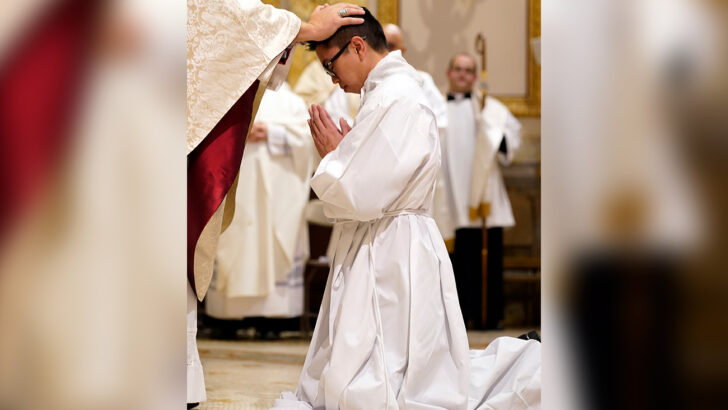As pilgrims of hope in a synodal Church, we need to talk urgently about ministerial priesthood. We need to courageously face up to the crisis of very few priests that will be in the Irish Church of the future and the consequences of this reality.
In doing so, there are two extremes to avoid. The first is what might be termed a theology of replacement whereby the flourishing of lay ministry currently taking place is seen as a replacement model for a clerical Church of the past.
This does a disservice to both lay ministry and ministerial priesthood for while both are orientated to the other, both are distinct vocations within the Church. The other extreme is to interpret a conversation on the value of priestly witness and ministry as a harking back to the past and a return to how things were.
What is needed is a Spirit led conversation that rejoices in so many of the baptised accepting the call to greater responsibility for mission and leadership in their parishes and dioceses. But also, one that values the unique and indispensable contribution of priests to the life of the Church – as ministers of the sacraments, preachers of God’s Word, teachers of the Catholic faith, bearers of the Catholic tradition and imagination, leaders of faith communities, interpreters and evangelisers of culture, animators of the baptised, men of prayer and good shepherds with the loving heart of Christ – all within and not apart from a synodal Church.
Balance
So too must we strike the balance between spiritualising the vocations crisis (I pray for vocations but wouldn’t want my son to become one and wouldn’t dare to ask someone had they ever thought of a vocation) and a secular type of recruitment drive that weakens the vocational foundation of a priestly calling.
Within these parameters, we need to face with hope the reality of the crisis we are in, trusting in the Lord being with us but yet facing the issues with eyes wide open. For example, we shouldn’t be surprised at a shortage of priestly vocations when our sacramental and catechetical systems don’t seem capable of producing and retaining committed disciples who live their commitment within the Church that prepared them.
The same is true for all vocations that have fallen in recent decades including that of marriage. This alerts us to a problem further ‘up stream’. Another issue is a lack of clarity about priestly identity. Who are we? What do we stand for, live for and die for if necessary? Has the rightful condemnation of clericalism been confused with a healthy and necessary clarity around priestly identity?
These are the questions and conversations we need to have as families, parishes and dioceses, and soon. It is a discernment process that can’t wait any longer because it simply can’t be business as usual.
The 17th centenary of the Council of Nicea
2025 marks the 1,700th anniversary of the Council of Nicea that was held just outside modern Istanbul, Turkey in 325. The historical context of the Council is complex but the outcome defined the creed we profess every Sunday – that Jesus Christ is of the same divinity as the Father and not some kind super saint. In this centenary and Jubilee Year, might it be an idea to gather with our brothers and sisters of the reformed Churches to reflect and celebrate the significance of the Council and its relevance for today?
The feast of the Lord’s baptism
Next Sunday the Church celebrates the feast of the Lord’s baptism. Following on from my words on vocations, might it be an idea for parishes to explore the link between our baptism and the vocation assigned to us there? The following line from the Rite of Baptism never ceases to amaze me.
As he traces the sign of the cross on the candidate’s forehead, the celebrant announces: “I claim you for Christ by the sign of the cross”. Astonishing words to contemplate. God has first claim on our lives. They belong to Him. Wow!



